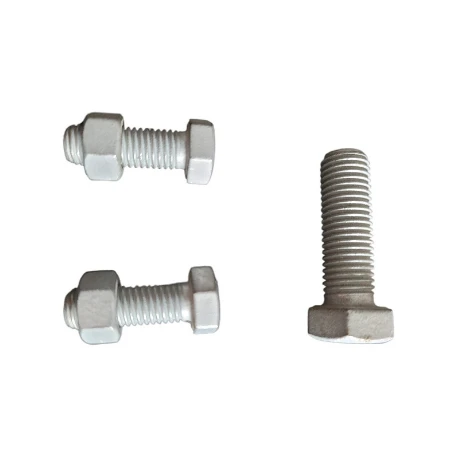

Self-Drilling Hex Screws for Versatile Fastening Solutions in Various Applications
Dec . 16, 2024 11:10 Back to list
Self-Drilling Hex Screws for Versatile Fastening Solutions in Various Applications
Understanding Self-Tapping Hex Screws A Comprehensive Overview
Self-tapping hex screws are specialized fasteners that are designed to create their own hole as they are driven into the material, eliminating the need for pre-drilled pilot holes. This innovative design makes them a popular choice in various applications, from construction to automotive assembly. In this article, we will explore the features, advantages, and applications of self-tapping hex screws, making it easier for you to understand why they are a preferred choice for many professionals and DIY enthusiasts.
Features of Self-Tapping Hex Screws
The most distinguishing characteristic of self-tapping hex screws is their ability to cut threads into the materials they are driven into. This is possible due to their sharp, often pointed tips and specialized thread designs. Hex screws are typically equipped with a hexagonal head, allowing for easy tightening with a wrench or a socket, which provides better torque than standard screw heads like Phillips or flat heads.
Self-tapping screws come in various sizes and materials, including stainless steel, carbon steel, and zinc-plated options, giving users a range of choices based on environmental conditions, corrosion resistance, and mechanical strength. Furthermore, they can be designed for use with different materials, such as metal, wood, and plastic, making them versatile for numerous applications.
Advantages of Self-Tapping Hex Screws
1. Time and Labor Efficiency One of the primary advantages of self-tapping screws is their ability to save time and labor. Since they do not require pilot holes, installation becomes quicker, which is particularly beneficial in assembly lines where time is essential.
2. Cost-Effective By eliminating the need for pre-drilling, self-tapping hex screws can reduce overall project costs. There are fewer steps involved in installation, which can also reduce labor costs in large projects.
3. Strong Joint Integrity These screws typically provide a strong connection, as they create their own threads in the base material. This results in good pull-out resistance and a secure hold, making them highly reliable under varying loads and stress.
4. Ease of Use With the hex head design, users can apply greater torque without the risk of stripping the screw head, ensuring a more secure installation. This makes them user-friendly for both professionals and hobbyists.
self tapping hex

5. Versatility Self-tapping hex screws are suitable for a diverse range of applications, from securing metal panels in construction to automotive and appliance assembly. Their adaptability to different materials also enhances their usability across various projects.
Applications of Self-Tapping Hex Screws
Self-tapping hex screws are utilized in countless applications across different industries
- Automotive Industry They are commonly used to assemble various components in vehicles, such as frames, interiors, and engine components, where strength and reliability are critical.
- Construction In construction, self-tapping hex screws are used to attach metal sheets, secure frameworks, and fix elements that require strong, vibration-resistant fastenings.
- Electronics These screws are frequently employed in assembling electronic devices, where their ability to secure multiple components together without compromising functionality is vital.
- Furniture Assembly They are also used in the production and assembly of furniture, ensuring a robust joint in a design that requires both aesthetics and durability.
Conclusion
In conclusion, self-tapping hex screws represent a critical element in modern fastening technology, combining efficiency, strength, and versatility. Their ability to simplify the fastening process while maintaining a solid joint makes them an essential choice for numerous industries and applications. Whether you are a professional contractor or a DIY enthusiast, understanding the benefits and uses of self-tapping hex screws can greatly enhance the quality and efficiency of your projects. Choosing the right screw for your specific application ensures a successful outcome, contributing to the overall durability and reliability of the finished product.
Latest news
-
Hot Dip Galvanized Bolts-About LongZe|High Strength, Corrosion Resistance
NewsJul.30,2025
-
High-Strength Hot Dip Galvanized Bolts - Hebei Longze | Corrosion Resistance, Customization
NewsJul.30,2025
-
Hot Dip Galvanized Bolts-Hebei Longze|Corrosion Resistance&High Strength
NewsJul.30,2025
-
High-Strength Hot-Dip Galvanized Bolts-Hebei Longze|Corrosion Resistance&High Strength
NewsJul.30,2025
-
Hot Dip Galvanized Bolts-Hebei Longze|Corrosion Resistance&High Strength
NewsJul.30,2025
-
Hot Dip Galvanized Bolts - Hebei Longze | Corrosion Resistance, High Strength
NewsJul.30,2025

